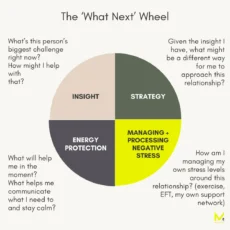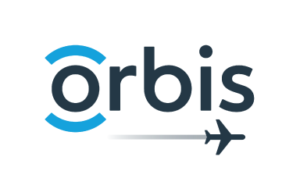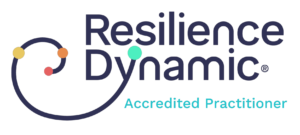‘The only thing that is constant is change’, said Hericlitus, the Greek philosopher.
Two thousand years later, post financial crisis, with technology advancing far quicker than we can keep up with, most of us are grudgingly starting to agree.
As individuals we feel the ripples of global change. Few people have a career for life anymore, most have two or three. Even if we stay in one role or organisation for a period of time, that organisation is likely to change dramatically around us.
Workplaces have to be agile to respond to their quickly changing context, which in turn means an increase in the number of restructures we’re each likely to go through in our working lives. Before 2007, I knew one friend who had been through redundancy. Now a large percentage of my friends have faced redundancy at least once.
On top of this, we are often dealing with more than one transition at a time. For example, I’ve just returned to work from maternity leave and the number of changes I’ve faced is both typical and bewildering: helping my child get used to childcare, getting used to a myriad of changes at work and to sounding coherent in meetings on three hours sleep.
Other changes that are often layered upon change at work include relationship changes and changes that affect our health of the health of our family members.
Sometimes it feels like we’ve reached ‘peak change’ and it’s overwhelming.
Yet actually going through and coping with peak change is preparing us well for life in the 21st century (even if we are a bit late to the party, sorry Hericlitus!) By raising awareness of how we each respond to change we can take steps to regain control and start positively engaging with our changing world.
Sounds good, where do I start?
The good news is that change elicits a predictable series of emotional responses including, but not limited to, denial, anger, confusion, depression and finally, acceptance.
We don’t necessarily go through these responses once and in a linear way, but can jump backwards through the emotions, as new information becomes available and new changes occur.
What helps me travel through this emotional minefield is to actively seek out things that help me stay focused and positive. When I say focused I mean focused on what is important to me, who I am, what I contribute to the world and what I can afford to lose control of and know it will be ok. And this connection with knowing who I am helps me tread more easily.
Sounds nice, but how?
For a start, focus and positivity work for me, but you might want engage with a different qualities – creativity, leadership, courage etc.
In order to work out what would help you, take some time to connect with yourself. You can do this on your commute, in the bath or in bed at night: Close your eyes, take a deep breath. Ask yourself:
How am I feeling about change? Name all the feelings that come up.
Take another deep breath and check in with any areas of tension. Maybe place a hand on anywhere that feels tight.
When you’re ready (and if all this deep breathing hasn’t sent you to sleep!) ask yourself:
What do I want to focus on? which of my qualities do I want to show to the world right now? See where this train of thought takes you.
Then ask, what does showcasing this quality look like for me right now?
It might be asking questions, speaking up in meetings or getting out of your workplace during the day. Or something non-work related like creating some time to go on a long walk or pursue a hobby.
Other practical things you can do to help you stay positive through change:
- think about who you hang out with. Who helps you feel confident? Who brings you down?
- how can you be a force for good to others experiencing change?
- read about change and how as individuals we respond to it. I like this article by Terri Babers about dealing with change positively.It includes some great suggestions.
Creating awareness of your feelings is the first step to managing them. And in order to do that you need to give yourself permission to have them. No matter how many times you’ve gone through change at work, relationship changes or any other transition, it is still difficult. Your feelings are still valid. Give yourself some love, and add ‘resilience’ to that list of fantastic qualities you bring to the world. After all, did Hericlitus ever have to do a work presentation after three hours sleep , a two hour commute and on recently upgraded meeting room software? No, I didn’t think so. You rock!!



















